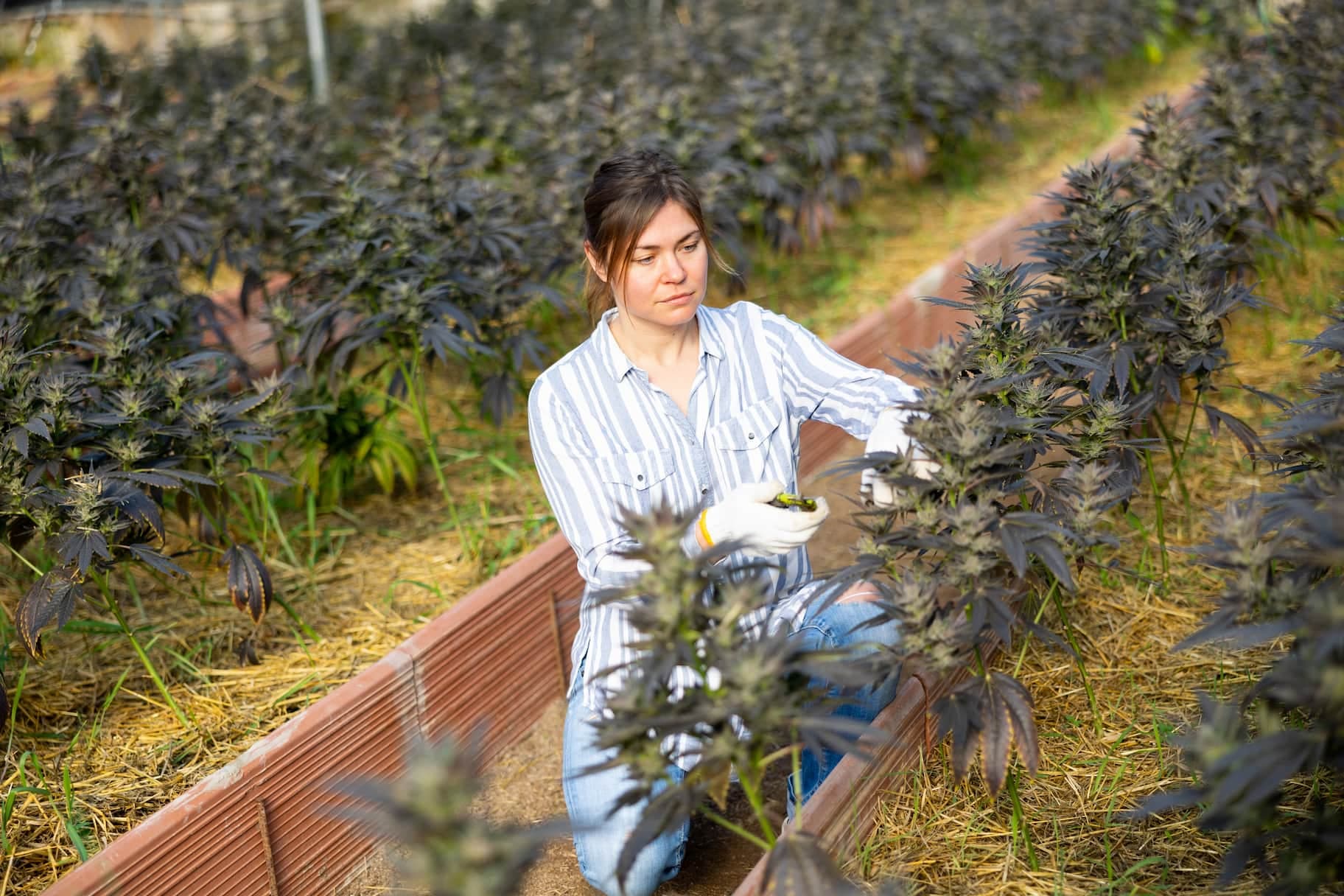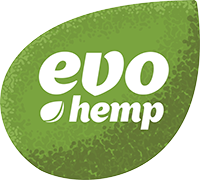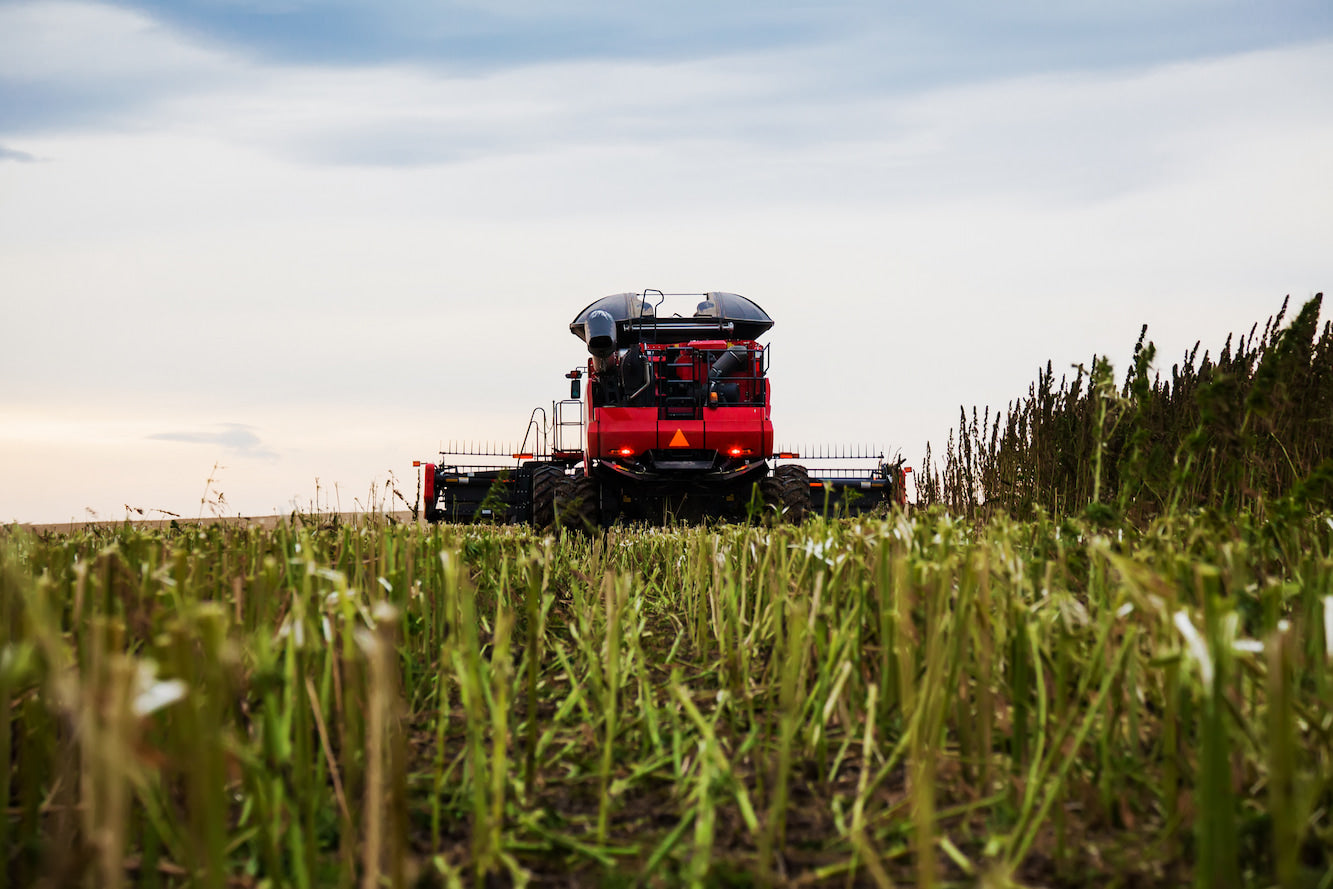CBD Isolate vs. Full Spectrum CBD: A Helpful Guide

If you are newly interested in CBD, there is a lot of language that can, quite frankly, make finding the right product downright confusing. Like, is hemp different from cannabis? Is it legal? And what is isolate vs full-spectrum? Is one better than the other in terms of health benefits, and which one is best for me?
CBD shouldn’t be this complicated! CBD is a highly beneficial and versatile plant compound, and information surrounding it should be easily accessible and digestible (much like CBD itself!) So if you feel a tad intimated and overwhelmed by all the terminology out there while researching CBD, we here at evo hemp have got your back. We’ll break it all down in easy, no-nonsense language. Read on to learn more about CBD, its uses, and isolate vs. full-spectrum options!
What Is CBD?
CBD, or cannabidiol, is a plant compound found in the marijuana or cannabis plant, also known as a phytocannabinoid. While CBD and THC are the most well-known phytocannabinoids, there are actually over 100 known cannabinoids in the cannabis plant. CBD offers a number of wellness benefits and, unlike THC, does not have any psychoactive effects. This means that it won’t alter your mental state, no matter how high a dose you take.
Hemp vs. Cannabis
CBD is the main cannabinoid found in the hemp plant. So what is hemp, and how is it different from cannabis? First, we should say that there is only one single species of the cannabis plant: the Cannabis sativa. Although it was previously believed that there were multiple cannabis species, including Cannabis Indica and Cannabis ruderalis, we now understand that these are subspecies or varieties of the single Cannabis sativa.
So, what sets these various subspecies apart? Mainly, their THC and CBD content. Some strains have high levels of THC, while others have higher levels of CBD.
Legally, hemp refers to subspecies that have low levels of THC incapable of producing psychoactive effects (currently, this number sits at 0.3% THC content in dry weight, although that percentage is likely arbitrarily), while cannabis refers to any varieties that have higher levels of THC. But both hemp and cannabis are derived from the Cannabis sativa species.
We have decades of misinformation and fear-mongering regarding cannabis to thank for that, unfortunately. But, all you really need to remember is this:
- Hemp is any type of the Cannabis Sativa plant containing less than 0.3% THC content
- Cannabis is any type of Cannabis Sativa plant containing over 0.3% THC content
Is CBD Legal Everywhere?
Hemp-derived CBD is federally legal. However, rules vary from state to state, making it a bit more tricky. Hemp became legal at the federal level with the 2018 Farm Bill, following a decades-long ban on hemp growth in the US, meaning that CBD derived from hemp (cannabis plants that contain less than 0.3% THC dry weight content) is now federally legal.
However, CBD can also be extracted from cannabis plants with higher THC content, and those are not federally legal–even if the final CBD product has low THC levels.
It is also important to note that different states have different rules and regulations outside of what was federally defined in the 2018 Farm Bill. Currently, 18 states have legalized recreational cannabis use. So in these states, you’ll be good whether your CBD comes from hemp or other strains of cannabis. In states where cannabis is not yet legalized, you’ll want to make sure your CBD products come from hemp and have a THC content that remains under 0.3% content (if you’re wondering, all of our CBD products are sustainably sourced from federally legal hemp plants!).
A very few select states have even stricter rules than what is defined in the Farm Bill. For instance, in Idaho, CBD products are only legal if it has zero THC content, meaning you cannot use full-spectrum CBD in that state (more on this later!). You can find out what your state’s specific rules are on your state’s government website.
How Does CBD Work?
As one of over 100 phytocannabinoids in the cannabis plant, CBD is able to work with our body’s own endocannabinoids within the endocannabinoid system (also known as the ECS). Endocannabinoids are produced on-demand to help maintain homeostasis within the body. When the body’s equilibrium is thrown off in some way, endocannabinoids can bind with cannabinoid receptors (CB receptors) found throughout the central and peripheral nervous system. From there, endocannabinoids can help the ECS regulate and respond to pain signals, mood, stress, sleep, and more. And because CBD is molecularly similar to endocannabinoids, it can support the ECS in easing physical discomfort, relieving emotional stress, promoting relaxation, and providing sleep support – without producing any psychoactive effects.
CBD Isolate vs. Full-Spectrum
Now that we know the basics, let’s get into the differences between Isolated and Full-Spectrum CBD.
CBD Isolate
During the extraction process for CBD isolate, all other plant parts are removed, creating an end result that contains only pure CBD. This means that CBD isolate products don’t have any of the other cannabinoids, flavonoids, and terpenes found in the hemp plant. Isolate is the purest form of CBD.
Some of the benefits of CBD Isolate include:
- Contains the highest potency of CBD per serving
- Often less expensive than full-spectrum
- Easily digestible
- Won’t show up on a drug test
- No THC – while this is a con to some, it is great if you are sensitive even to trace amounts of THC!
Full-Spectrum CBD
When CBD is extracted for a full-spectrum product, all other nourishing plant parts remain intact, making this a whole plant extract. This means that your CBD will contain some amount of all other compounds natural to the hemp plant, including THC.
The benefits of Full Spectrum CBD oil or tinctures include:
- Added wellness benefits from the hemp plant’s other cannabinoids, terpenes, and flavonoids
- Can produce the much-desired entourage effect
What Is the Entourage Effect?
The entourage effect takes place when the different components of the cannabis plant work synergistically together to strengthen each other’s effects.
When CBD extract includes low levels of other naturally occurring cannabinoids and terpenes, like CBN, CBC, and CBG, it helps strengthen the wellness benefits that CBD has to offer. Basically, if you are using CBD to enhance your well-being in any way, the entourage effect can enhance it even further! Because CBD isolate doesn’t contain any other plant compounds, you won’t experience the entourage effect if you opt for an isolated product. If experiencing the entourage effect is important to you, you’ll want to go for a full-spectrum or broad-spectrum CBD product instead.
What About Broad-Spectrum?
Broad-spectrum CBD is like a happy medium between isolate and full-spectrum. All THC content is removed from broad-spectrum products, but the other plant compounds remain. Broad-spectrum products can still produce the entourage effect (although it is thought to be less concentrated than that resulting from full-spectrum CBD), but won’t show up on a drug test (and the lack of THC means it is legal in Idaho, if that is of concern!).
So, Which Form Is Best?
Ultimately, the form that is best for you depends on your personal preference and what you are hoping to gain from CBD.
If you are sensitive to THC, or are concerned about THC showing up in a drug test, an Isolated CBD product will still provide ample wellness benefits.
If you don’t have any issues with THC, a full-spectrum product can provide even more beneficial mental and physical wellness benefits without producing any psychoactive effects. Once you decide between full-spectrum and isolated CBD, you can choose the type of CBD product you want to use.
How Can I Take CBD?
Both CBD isolate and full-spectrum CBD come in a number of easy-to-use forms.
CBD Oils
CBD oil is perhaps the most common way to enjoy CBD. CBD oil undergoes a CO2 extraction process to remove the CBD from the hemp plant. Pressurized CO2 is able to pull phytocompounds out of the plant without degrading any of the active chemicals. From there, different compounds can be filtered out for full-spectrum, broad-spectrum, or isolated products.
The extracted CBD is combined with a carrier oil such as coconut oil or hemp seed oil to help boost the CBD’s bioavailability. The bioavailability of a substance refers to how much of it is successfully absorbed into the body, and since CBD is naturally fat-soluble, the fatty acids in the carrier oil are needed to ensure the body can absorb enough CBD to produce effects.
CBD oil can be dropped directly under the tongue and held for 90 seconds to help boost the bioavailability even further. When taken this way, the CBD oil bypasses the digestive tract and is instead absorbed into small blood vessels in the mouth. CBD oil taken under the tongue will typically kick in within twenty minutes, whereas CBD oil mixed into a drink will take closer to an hour before taking effect. CBD oil is easy to start with because you can easily control and change the amount you take.
CBD Powder
Our water-soluble CBD powder is a rare form of CBD that doesn’t require fat to be absorbed into the body. Our full-spectrum CBD powder still undergoes a CO2 extraction and filtration process, but a few steps are added to make it water-soluble. This powder is wonderful because–unlike CBD oil– it can easily mix with just about any food or drink. Our powder is 10x more bioavailable than ingested CBD oils. If you don’t love the earthy, nutty taste of CBD (it is not for everyone!) CBD powder is a better bet than oil.
You can mix these powders into your morning coffee, your nighttime tea, your post-workout smoothie, even a nut butter or salad dressing!
If incorporated into food, we would advise waiting until after you have cooked or baked your goodies before adding the powder, as high heat can destroy the CBD’s active ingredients. Like oils, it is easy to choose your own dose with our CBD powder. Each serving (¼ teaspoon) contains 20 mg of CBD, and you can use more or less than a serving depending on how much is right for you (we’ll cover dosages more thoroughly below!)
CBD Crystals
Our Pure CBD Crystals are an ideal isolated CBD option. These crystals have a high concentration of CBD per serving and are more easily digestible than many other forms of CBD, as they are 99.9% pure CBDpowder, with just .01% of natural hemp-based fats. Like CBD powder, these crystals are easily mixed into food and drink.
CBD Gummies
CBD gummies are another great option if you aren’t a fan of the natural taste of CBD. These gummies combine CBD with other ingredients to create sweet flavors and beneficial CBD snacks! Our refreshing full-spectrum evo hemp CBD Gummies combine the essential omega-3 fatty acids from the hemp extract, organic sweeteners, and natural plant extracts to build a flavorful, bioavailable, and beneficial gummy.
Softgels
evo hemp CBD Softgels are tasteless, consumable forms of CBD. You can find capsules and softgels in either full-spectrum, broad-spectrum, or isolated form. While softgels include oils, the gelatin lining masks the taste in this easy-to-swallow option. Because CBD softgels pass through the digestive tract, they will take longer to kick in than CBD oils taken sublingually.
CBD Topicals
Unlike other forms of CBD, evo hemp CBD Hemp Seed Oil are applied directly to the skin. The naturally soothing properties of full-spectrum or isolated CBD in topicals can help moisturize the skin, reduce blemishes, support skin elasticity, and even work beyond the skin to ease localized discomfort. Our evo hemp CBD Hemp Seed Oil pairs CBD with hemp seed oil. Massaging this topical into sore muscles or joints allows the CBD to reach nearby cannabinoid receptors, where they can help provide relief.
And because CBD topicals aren’t digested or absorbed into the bloodstream, they kick in fast (often within ten minutes) and can be reapplied as needed throughout the day!
Dosage
When it comes to CBD, there is no standard dose. Different people feel the effects at different amounts, so finding what is right for you will take some trial and error.
For many, an average dose ranges between 20 mg and 40 mg of CBD. Interestingly, CBD isolate follows a bell curve when it comes to dosing, meaning that once you reach a dose that produces effects, increasing the dose won’t increase the benefits.
The effects of THC, on the other hand, do increase as the dose increases, so you may find a higher dose of full-spectrum CBD does correlate with slightly stronger effects. But because the THC content is so low, this will only be true up to a point,
Whether you are using isolated or full-spectrum CBD, we recommend starting with a lower dose (five to ten milligrams is perfect!), and increasing your dose slowly each day until it feels right. You also shouldn’t take more than 100 mg of CBD per day.
Precautions
Because there is no standard dose for CBD, it is important to only purchase CBD products from third-party tested brands and share their Certificate of Analysis. This guarantees that high-quality products are used, and that the dose listed on the label is accurate.
Also, be sure to follow the label of any product you use, and don’t exceed the recommended daily limit.
Are There Any Side Effects Associated With CBD?
Reports of side effects with CBD are rare, and those few side effects are mild and typically resolve on their own. Side effects usually only occur if CBD is consumed in extremely high doses (often due to trouble digesting high amounts of the carrier oil) and can include:
- Dry mouth
- Fatigue
- Headaches
- Nausea
- Diarrhea
Keeping your daily CBD intake under 100 mg will help you avoid any of these undesirable side effects, and 100 mg is often more than you’ll need to feel the desired effects of CBD anyway!
Bottom Line
CBD can benefit your wellbeing in whichever form you prefer to take it in. At evo hemp, we only use ethically sourced, high-quality hemp to create our CBD products.
Whether you want a high concentration of CBD in a THC-free, isolated form or are craving the entourage effect that comes with a full-spectrum product, you can find it all at the evo hemp shop!
Sources



